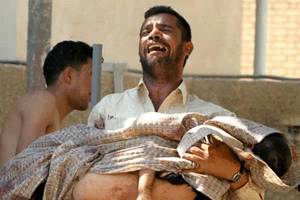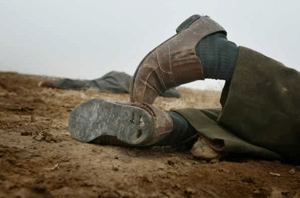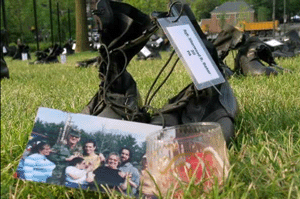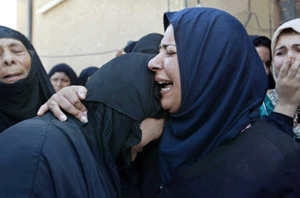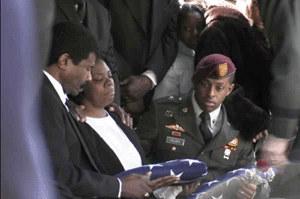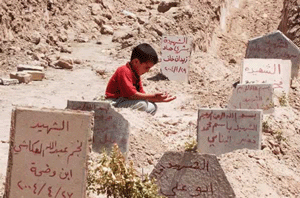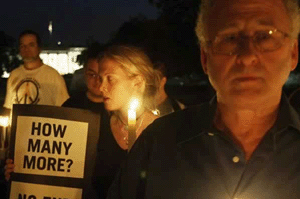While I have been critical of developments in the labor movement at the national level for quite a while, there are stirrings at the local levels in some places that are encouraging. I want to report on a recent effort by the Northwest Indiana Federation of Labor.
Indiana, as many know, strongly supported President Bush in the 2004 election. But what a lot of people don’t know is that Northwest Indiana is much different than the rest of the state. Northwest Indiana — despite over twenty years of deindustrialization — is the center place of what remains of the U.S. steel industry and has an industrial concentration unlike that of the rest of the state. It also has a high proportion of Democrats as elected public officials. (Yes, I know, but stay with me.) It also is the place where a local labor council is making new links with community organizations and concerned individuals.
On November 5th of this year, the Northwest Indiana Federation of Labor co-sponsored a day-long conference with the Democratic Alliance of Northwest Indiana. This was encouraging for a couple of reasons: (1) labor’s intent to help set the agenda of future Democratic candidates, rather than just ratify already-adopted platforms; and (2) the wide range of topics discussed. Although the key speakers were Democratic office holders, it was the workshops that were of interest to me. There were workshops on the war in Iraq, health care, the mass media, election reform, veterans’ affairs, the environment, labor issues, and homeland security. This was not a “traditional” labor conference.
The day of the conference, one of the key organizers told me that the leaders had decided that they would be “thrilled” to get fifty people to come to the conference — and yet, as of that morning, over 170 people had pre-registered! And while only about 150 people showed up, it was a very successful draw: to have that many people show up for a five-hour conference on a Saturday, in an area where mass participation in a conference is unusual, and where pre-registration was required, was quite positive. That the majority of the people there were working people and definitely not college-types was even more exciting — especially surprising was that only a few of these people were political activists (of the ones I could identify). But it was also good to see some college students there as well.
The most attended workshop was the one on the Iraq war. Vietnam veteran and local organizer Nick Egnatz spoke about his efforts to build local support against the war: Egnatz had marched alone during one of the Fourth of July parades in the region this year, protesting the war, but more recently has been getting around 100 other people to join him in weekly mobilizations. He was bringing the American Friends Service Committee’s (AFSC) memorial for the fallen National Guard troops and the Iraqi dead into the region, which was scheduled for Valparaiso University in Valparaiso and in Highland and was also subsequently brought to Purdue University Calumet by the students’ Social Justice Club. Another speaker was a father of a man on active duty who had just come home from the war. And then I spoke about how the war was distracting Americans from other problems in this country, specifically focusing on increasing income inequality (see the second half of my October piece, “Labor: Eyeless in America”). I didn’t try to go to all the workshops, but rather focused on the ones I was personally interested in. There were full houses in the ones on labor issues and the environment: ordinary people sitting down and discussing issues important to them and our society with their friends, neighbors, and fellow citizens.
150 people certainly aren’t many, but there was a lot to get excited about. In a region where local people almost never get involved in politics — even electoral politics, much less more radical stuff — it was good to see all these people there. People were engaged in the workshops in which I was present. While the Democrats were trying to motivate people to join “the party,” it seemed clear that what people wanted was to get involved in something collective and bigger than just themselves.
And the Federation of Labor came out a big winner on the day. For a small investment in time and money to help get the conference off the ground, the Fed gained itself a lot of favorable publicity among those attending and was also mentioned positively in media reports. The most important message was that labor was a key actor in the community throughout the region, and that labor leaders and activists were concerned about more than just their particular collective bargaining contracts. The support gained by taking that larger view was considerable and, I predict, will pay off down the road.
More importantly, there is a message here for the larger labor movement: when labor addresses issues and concerns of the larger community — i.e., does not confine its concern only to particular collective bargaining issues or those specifically of interest only to the labor movement — then it can have a very positive impact on the local scene. Despite so much negative publicity about the labor movement over the years — much of it self-inflicted, unfortunately — labor still remains the one institution in our society that is run by working people for the well-being of working people. Few expect perfection. Most recognize that its primary goal is to advance the interests of its members. But the welcoming of labor into the larger community by the people who attended this November 5th conference suggests that if labor will dream, will engage, and will join in solidarity with other movements and organizations — not to try to dominate, but to work together respectfully and democratically — then it can have a tremendously important role in addressing the needs and concerns of people across this country, if not the world.
The question is: will labor activists and leaders recognize this and take the risks to engage the community? And if they will, will the efforts be confined to those at the “top,” or will labor involve their own ranks, by initiating educational conferences and opportunities for both rank-and-file unionists and community members? Education and activism together remain two of the best ways to develop leaders — and if we are to even have a chance to change this country, for the good of most of us, then we need to make leadership development within ALL of our organizations a high priority, in reality and not just rhetorically. But if labor can take the first steps in that direction in Northwest Indiana, however limited and tentative, then that should inspire each of us to try them in our own communities nationwide.
Kim Scipes is a member of the National Writers Union and a long-time global labor activist in the US. He currently teaches sociology at Purdue University North Central in Westville, Indiana. His on-line bibliography on “Contemporary Labor Issues” can be accessed at http://faculty.pnc.edu/kscipes/LaborBib.htm. He can be contacted at <[email protected]>.

